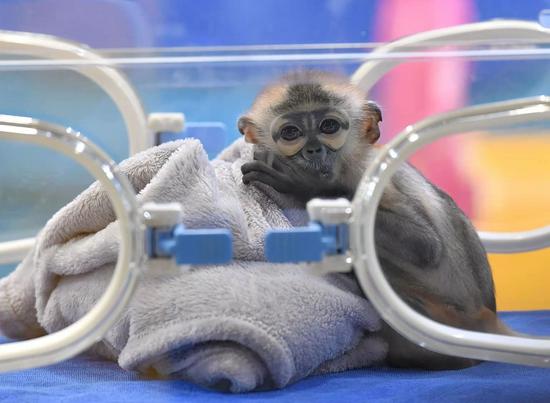
Photo taken on Nov. 10, 2021 shows the newborn Black-shanked Douc Langur in an incubator at Chimelong Primate Research Center in Guangzhou, capital of south China's Guangdong Province. (Xinhua/Liu Dawei) China's captive breeding program of an endangered primate with its wild population of less than 1,000 worldwide has succeeded, said researchers on Thursday. Black-shanked Douc Langur, the rare wildlife, is listed "endangered" by the International Union for Conservation of Nature (IUCN) Red List of Threatened Species. Currently, one of the relatively effective methods to restore its population is through human intervention. China's captive breeding program of the species succeeded on July 9, when a baby monkey was born in Chimelong Primate Research Center in Guangzhou, capital of south China's Guangdong Province. The newborn primate made its public debut on Thursday. It is expected to leave its incubator about two months later and be released to its own species group at about two-and-a-half years old, with the center's experts' relevant animal training and guidance. |